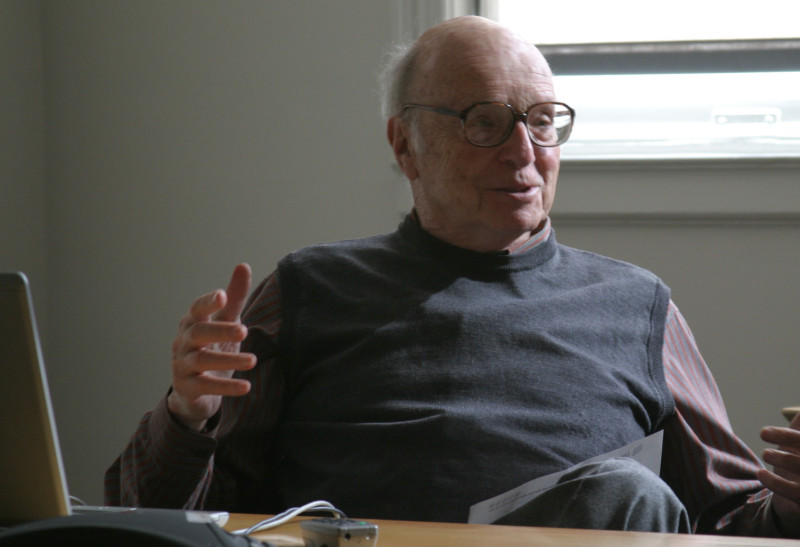In all, the Field Poll has published more than 2,500 reports on the moods and musings of California, reports that became the go-to resource for political insiders and analysts.
"Field and his poll have defined California politics," said a 1999 profile of the pollster in the now defunct California Journal. "He has been the man who explained Californians to one another and to the nation."
His love of taking surveys seemed to date back to at least his high school days in New Jersey, and a serendipitous introduction to legendary pollster George Gallup. Field went on to work for Gallup's company after high school, and moved west to California after serving in the U.S. Merchant Marine during World War II.
By the 1960s, The California Poll (the original name of his landmark surveys before the nickname "The Field Poll" caught on) was a major part of every California political campaign. In 1961, a full year before the election for governor, Field's poll showed incumbent Pat Brown trailing former Vice President Richard Nixon by 18 points. According to the California Journal profile:
A Brown aide called [Field] to ask, "Is it all over for Pat? Field, shaken that a single poll could have such a profound impact, suggested the governor would be ill-advised to make any decision based on a single poll. When a later poll showed Brown pulling ahead, a furious Nixon attacked Field. By the mid-'60s, an adverse showing in a Field Poll could dry up a candidate's fundraising.
Even so, the pollster long disputed the direct impact his surveys could have on an election's final result. In a 1976 interview, Field said that, "The 1 percent of campaign managers and politicians who live or die by it, or political reporters, are not the rank and file" of citizens.
Field's honesty about the pitfalls of polling won him praise from the very beginning. His 1948 statewide poll on the presidential race close to Election Day originally showed President Harry Truman and GOP nominee Thomas Dewey tied in the Golden State. Field thought the result was wrong, reassessed the data, and proclaimed Dewey ahead by 5 points. Truman, of course, defied the skeptics and won California by half a percentage point. Field quickly offered a mea culpa for second-guessing his data.
The pollster also found himself in the thick of the news cycle in California's 1982 governor's race.
Field's final pre-election poll showed Tom Bradley, the Democratic mayor of Los Angeles, as likely to beat George Deukmejian, the state's Republican attorney general. Deukmejian, of course, pulled out the victory. Field told reporters that some voters leaving the polls had said they didn't vote for Bradley, an African-American, because of his race -- a confession they wouldn't make when polled before the election. The "Bradley effect" of hidden voter feelings still remains a topic of discussion in political circles.
In truth, Field's sampling of political issues began mainly as a means of promotion. He once admitted that he began The California Poll as a way to attract the attention of paying customers, businesses that would be eager for high-quality consumer research. Through the years, Field's company has continued to do that kind of survey work. But it was the statewide public polls that "were his baby," said colleague DiCamillo.
